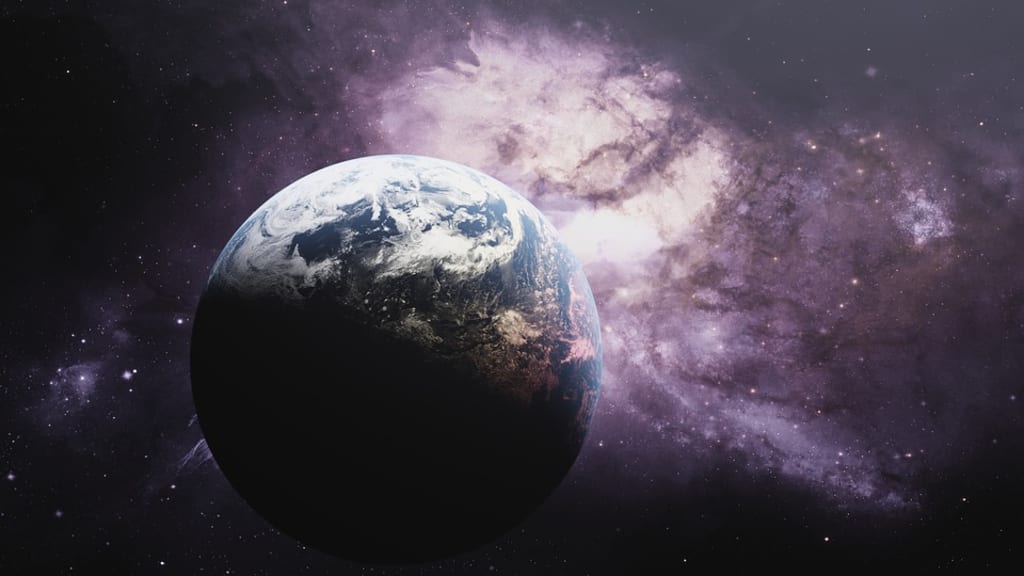A World Without The Sun
Life on Earth Without the Sun

A rogue planet refers to a planet that has been expelled from its own star system and is now drifting aimlessly through space. These planets are not just a theoretical concept as scientists have actually detected some within our galaxy. It is estimated that there may be numerous such cosmic nomads floating around the Milky Way. These planets are not limited to small rocky worlds like Earth; some of them are massive gas giants several times larger than Jupiter. These behemoths could potentially have their own moons and mini-systems orbiting around them.
For instance, one of the most renowned rogue planets, located about 80 light-years away from Earth, was discovered in 2013. This planet is estimated to be around six times the mass of Jupiter and is believed to be around 12 million years old. Despite not having a star, these cosmic loners can still generate heat and light from their own internal processes. Some may even have magnetic fields and auroras just like Earth.
In essence, habitable conditions may exist on rogue planets. However, what would life on such a planet look like, and could we inhabit such a world? Living on a rogue planet can be a solitary experience, devoid of a warm sun to bask in, a cozy atmosphere to snuggle up in, and cosmic neighbors to have barbecues with. Hence, we must be resourceful.
The most apparent issue is the lack of light and warmth, which poses a significant challenge. One solution could be investing in sophisticated space heaters and fashionable, super warm spacesuits. Alternatively, we could devise a novel approach to generate electricity that does not rely on solar power. For instance, we could harness geothermal energy, which is a potent source of heat. Every planet has an internal heat source, and without it, they would be nothing more than lifeless, frigid rocks meandering through space.
The utilization of internal heat can serve as a source of power for a variety of purposes ranging from residential to industrial to aerospace applications. It can be likened to a large hot tub with the capacity to generate enough energy to power an entire city. The city would likely be situated underground in close proximity to the heat source. As for illumination, it may be necessary to construct extremely bright flashlights or explore the possibility of genetically engineering bioluminescent organisms to provide lighting for our homes. Consider the prospect of a space environment where neon mushrooms and plants grow in abundance. However, the absence of a star would make it challenging to cultivate plant life, leading to the need for alternative sources of sustenance such as geothermal vents or chemical reactions. It is possible that a preference for sulfur-rich foods or fermented drinks made from volcanic mud may develop.
In the event of inhabiting a rogue planet, the lack of breathable air would pose a significant challenge. The stability and quality of the atmosphere on these planets are dependent on factors such as size and composition, and may not be conducive to human survival. Even if an atmosphere is present, it may be thin and unstable, devoid of the picturesque blue skies and colorful sunsets that we are accustomed to. Instead, we would be gazing into the endless expanse of space, with stars shining brighter than ever before. Furthermore, the absence of weather patterns due to the lack of atmosphere would mean that there would be no precipitation, no sun.
Ultimately, we would face exposure to various forms of space debris and cosmic radiation. To prevent any harm to ourselves, it would be wise to consider investing in high-quality SPF products. In order to address this issue, we would need to develop a means of generating our own oxygen and establishing a space-age biosphere. This could potentially involve cultivating oxygen-producing plants or utilizing advanced air purifying technology.ow, and no thunderstorms. In addition to these minor issues, the temperature on the planet would be highly erratic, fluctuating from unbearable heat to unbearable cold. Living on such a planet would be akin to residing in an oven that is constantly being turned on and off.
Finally, we come to the last and most significant issue of finding water. Underwater oceans can prove to be a viable solution to this problem. Scientists suggest that certain planets may possess underwater oceans. Living on such a planet would be akin to residing on a colossal water balloon that has been buried underground. The ground beneath our feet would be a blend of ice and rock. In simpler terms, we can tap into these underground oceans to acquire a source of water for drinking, farming, and manufacturing. These oceans may also contain resources and materials that are yet to be discovered. Additionally, there is a possibility of encountering strange creatures in these underground seas. However, even if underground oases are not available, we have other options like getting water from comets, ice mining, and even from the atmosphere.
To build homes and structures on a rogue planet, resources must be acquired and extracted. However, the available resources may be different from those found on a planet orbiting a star. Finding resources on a rogue planet is like searching for treasures in a desert - it's not guaranteed. Resources may need to be obtained from nearby asteroids or other celestial bodies. If resources are desired from the planet itself, drilling through layers of ice and rock may be necessary. Despite the challenges, there is potential for discovering valuable resources on a rogue planet.
It appears that we have successfully resolved the most significant issues. However, there may be minor complications that we must address. For instance, due to the speed of our planet's rotation, we may experience extended periods of daylight and darkness, resulting in an irregular day-night cycle. This unpredictability may cause disruptions to our sleep patterns, necessitating the development of a potent coffee to sustain us during the prolonged dark nights. Nevertheless, we can adapt and overcome these challenges. Therefore, we cordially welcome you to the Rogue planet, where the sun never rises, but the adventure never ends. Thanks to our advanced technology, we have transformed this once barren world into a comfortable and habitable environment.
The sky above us presents a picturesque shade of blue, adorned with fluffy white clouds and the occasional flock of flying creatures. Upon venturing out from our subterranean habitats, we are greeted by a world that is replete with surprises. Strange plants and animals have adapted to the unique conditions of this planet, some of which possess bioluminescent features that emit an ethereal glow in the dark. However, one must exercise caution while swimming in the subterranean ocean, as it may harbor some bizarre creatures that may pose a threat to one's well-being.
As you can see, we have built sprawling cities and thriving communities powered by the planet's geothermal energy. We have also created a plethora of artificial light sources that keep things bright throughout the dark, chilly nights. Of course, we still face some challenges with navigation and timekeeping, but life is far from dull.
Living on a rogue planet certainly presents its fair share of challenges, but it also offers an exciting way to experience the universe. Perhaps someday, we will discover such a planet and transform it into a bustling intergalactic metropolis. Until then, let us cherish and conserve our beloved Earth.
About the Creator
Cyril Nsiah Baafi
Cyril is a new and upcoming author who loves science and the mystery of how things work. He lives in Ghana, where he enjoys exploring the natural wonders of his country and learning about its rich culture and history.





Comments (2)
A world without a sun... will be a mystery
So engaging